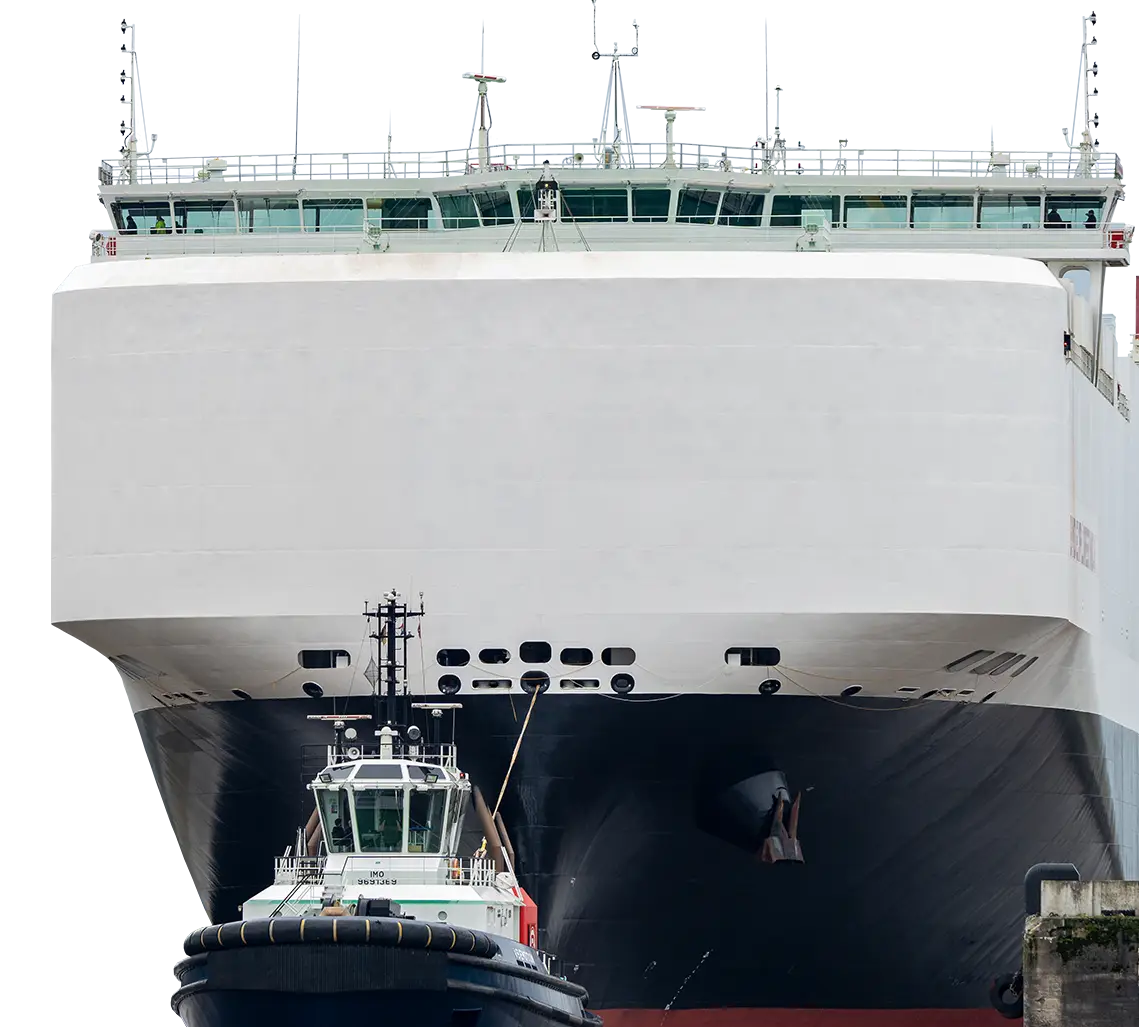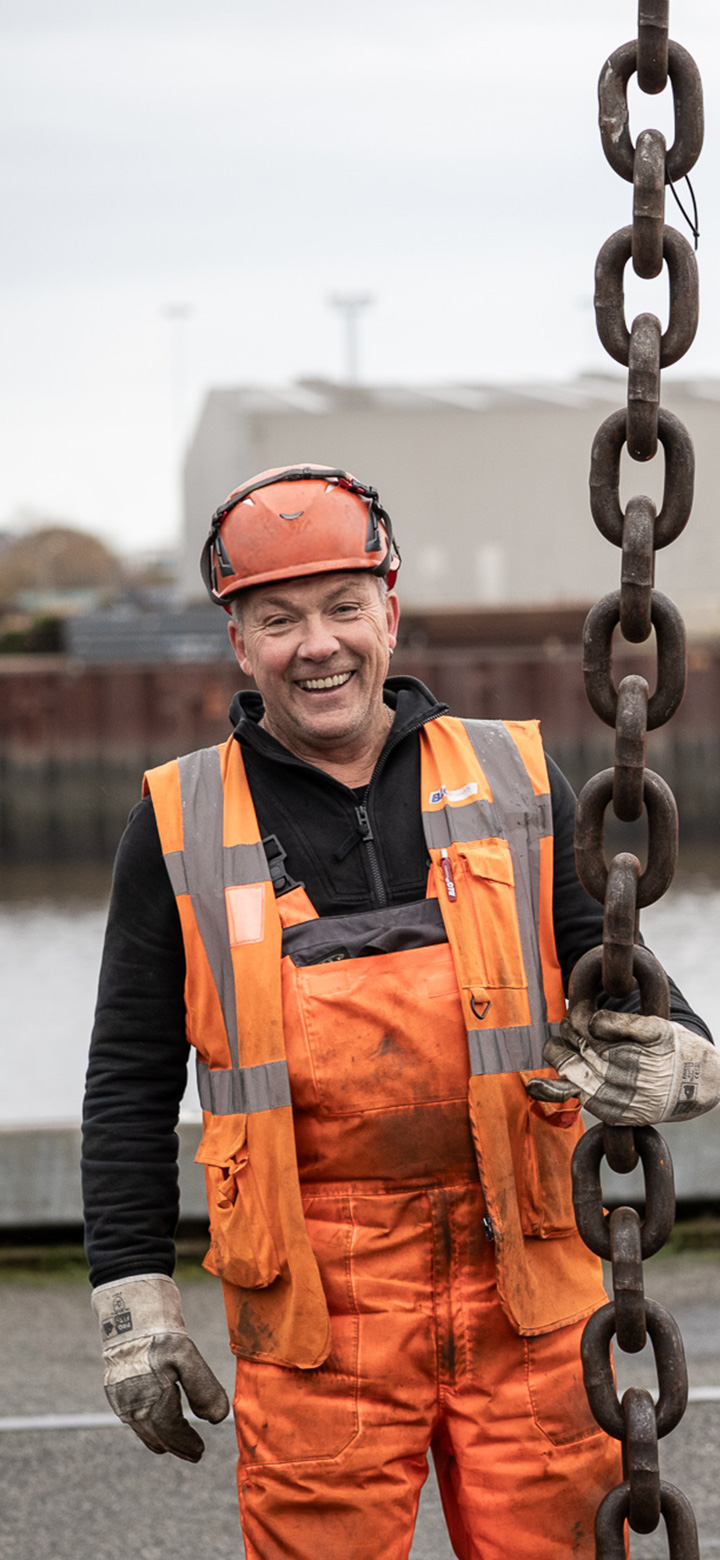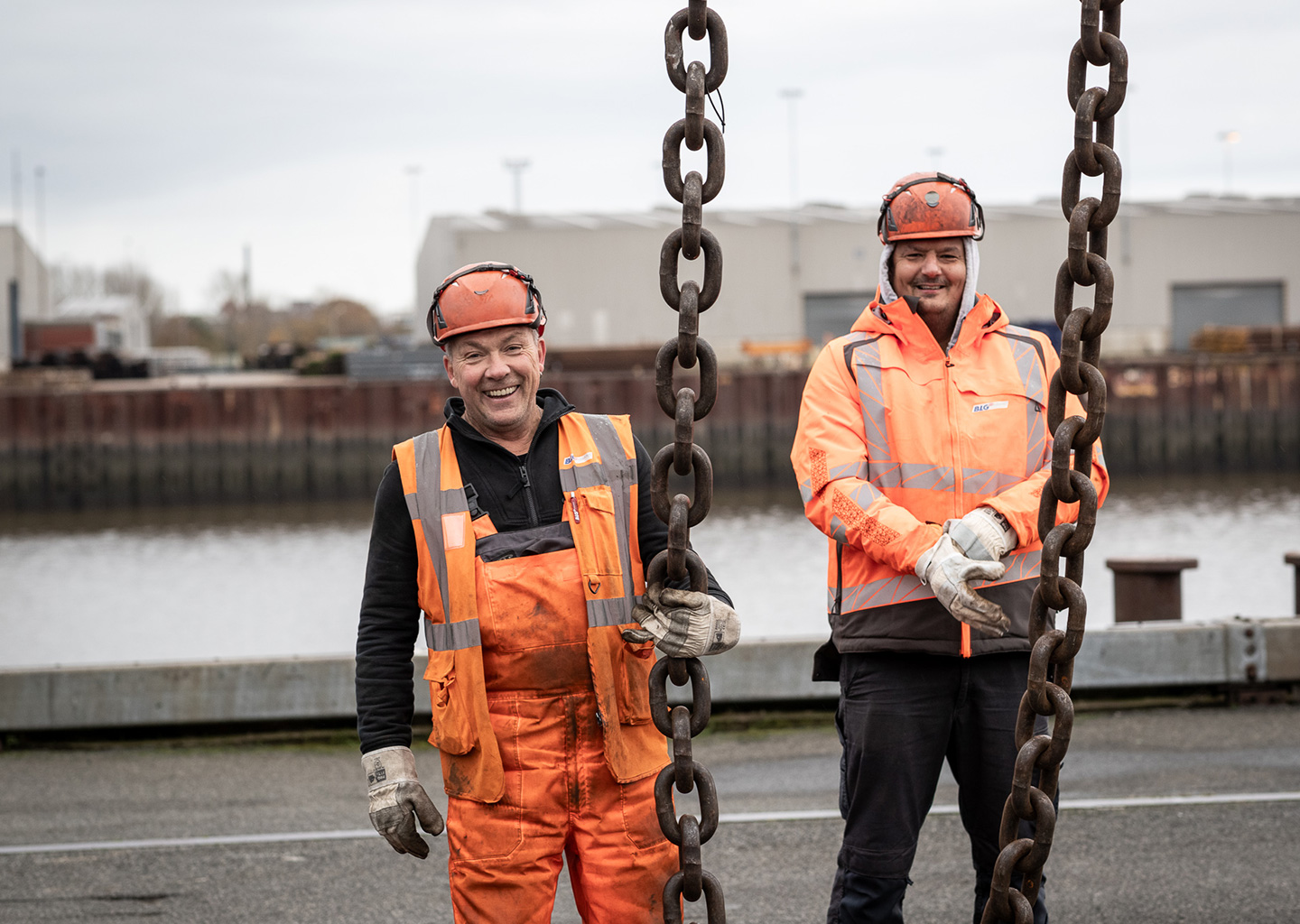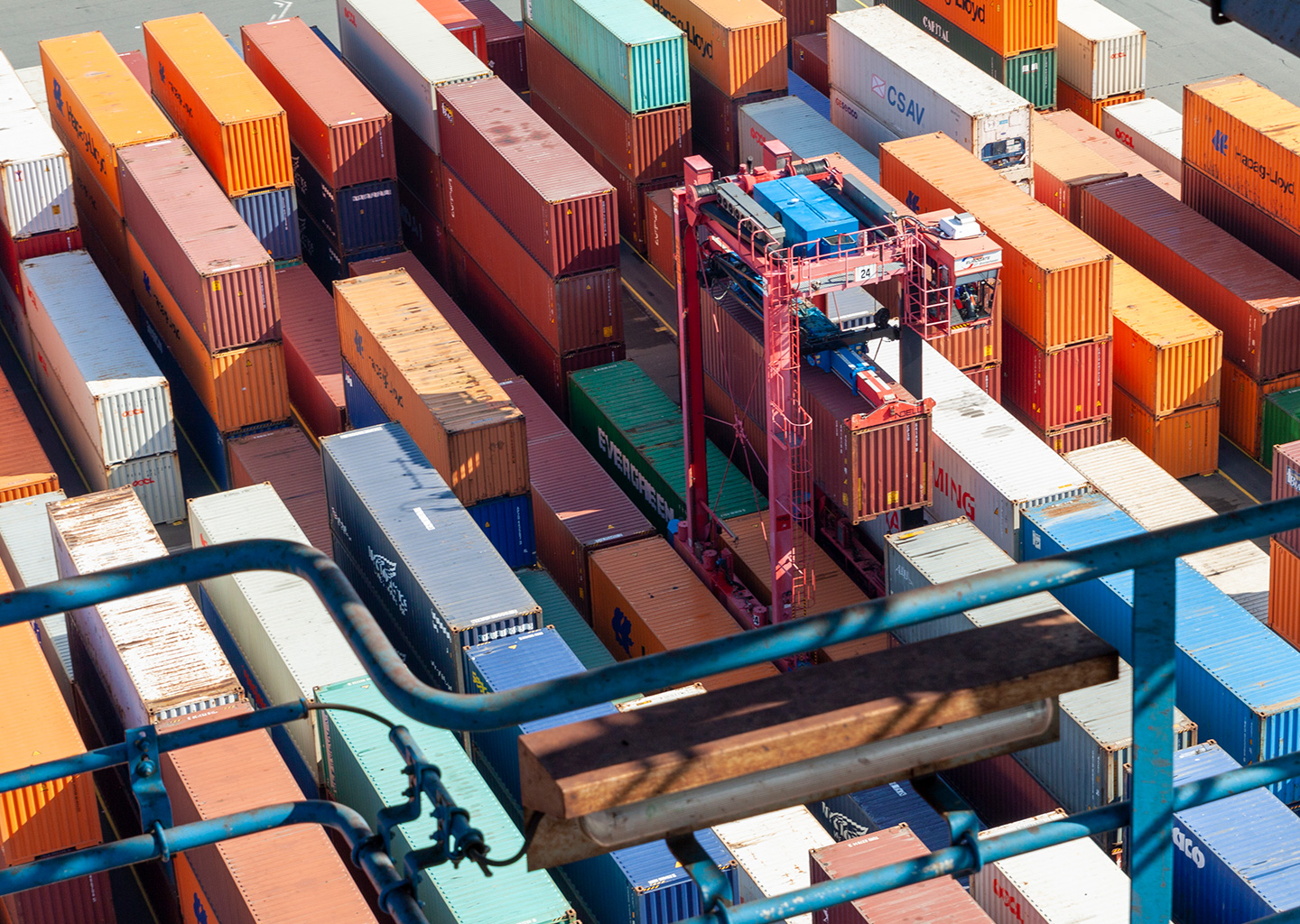
We safeguard the future
Germany needs its ports. Just as it always has. And the ports need Germany. Now!




We can shape the future. We know exactly what needs to be done. Today’s climate goals and growing goods transport demand faster and more committed expansion of our seaports.

